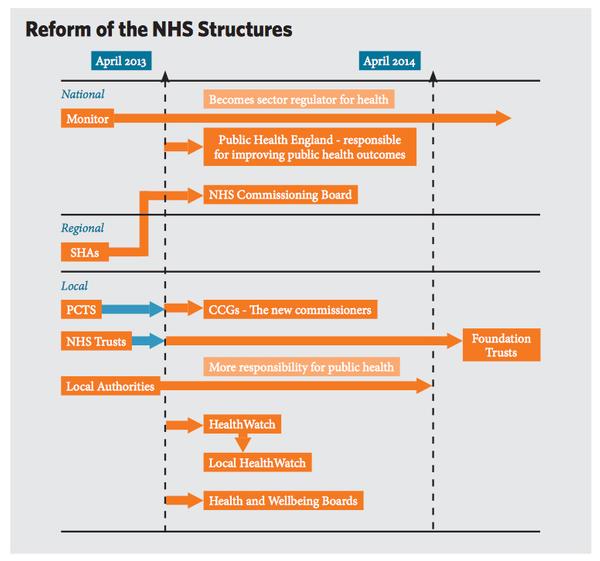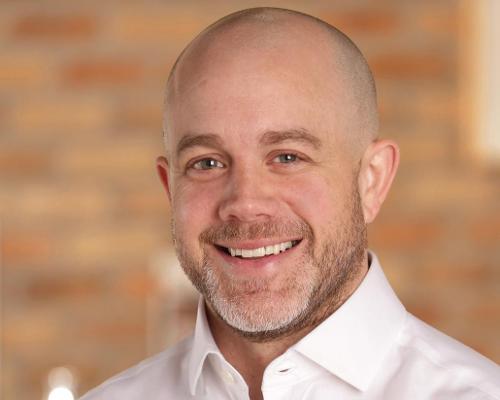features
ukactive update: The new public health landscape
David Stalker, CEO of ukactive, outlines the changes to public health commissioning that took effect on 1 April and examines the impact these will have on all providers, both in the health and wellness sectors and in the wider healthcare industry
Last March, the coalition government’s Health and Social Care Act passed through parliament. It represented a radical shake-up of the NHS and has brought extensive changes to the entire NHS and public health landscape, setting out a major programme of reforms to restructure healthcare services and public health responsibilities.
A new public health structure, born out of these wide-ranging reforms, came into force on 1 April 2013.
Background
The coalition government’s strategy for public health was originally laid out in the white paper Healthy Lives, Healthy People, which envisaged moving to a more local and patient-focused health system. The White Paper proposed changes to the way public health services are commissioned and delivered, which were subsequently formalised in the Health and Social Care Act 2012.
The rationale for the change is to better meet the needs of local populations, and to enable the integration of public health into local systems and services, acknowledging the importance of local issues and the social determinants of health (eg housing, education, financial security and the built environment).
The changes are also driven by a need for the NHS to find £20bn of efficiency savings by the end of 2013/2014, as well as ongoing cost efficiency opportunities within a national health system that’s pressured by rising levels of chronic conditions and an ageing population with complex social care needs.
All change
The key changes that came into place on 1 April 2013 include:
• Primary Care Trusts (PCTs) are replaced by Clinical Commissioning Groups (CCGs), giving greater control to GPs in the commissioning of primary, secondary and social care.
• Local authorities will now be responsible for all areas of public health, including tobacco control, locally-led nutrition initiatives, public mental health services, increasing levels of physical activity in local populations and decreasing inactivity, managing chronic conditions and obesity levels, and initiatives on workplace health. Local authorities will be guided by a new structure, Public Health England, on how to distribute their £2.7bn ringfenced public health budget.
• Local authorities will need to demonstrate improvements in public health outcomes, measured in terms of progress against indicators of local health needs. These needs will be set out by the local authorities and CCGs in Joint Strategic Needs Assessment (JSNA) and reflected in Joint Health and Wellbeing Strategies (JHWS).
• GPs are charged with making decisions on commissioning – prescriptions will come out of their own budget, so they will be seeking cost-effective solutions and preventative interventions.
The reforms mark the first time there has been structural recognition of the importance of prevention in healthcare and the role of public health. Physical activity levels among the UK population are one of the indicators in the Public Health Outcomes Framework (see below) – that will be used to measure the outcomes of the changes detailed above.
Measuring outcomes
The outcomes of these changes to public health delivery will be measured through a number of frameworks:
NHS Outcomes Framework
A framework to provide a national overview of how well the NHS is performing, wherever possible in an international context. It will also act as a catalyst for driving quality improvement and outcome measurement in the NHS by encouraging a change in culture and behaviour, including a stronger focus on tackling health inequalities.
Quality Outcomes Framework (QOF)
A voluntary annual reward and incentive programme for all GP surgeries in England, detailing practice achievement results. It’s not about performance management but rather resourcing and then rewarding good practice.
Public Health Outcomes Framework
From April 2013, all local councils will receive a ringfenced budget (a share of around £5.2bn based on 2012/2013 funding) for public health spending, and will be able to choose how they spend it according to the needs of their population. There are 353 councils in England and their performance will be measured against this framework, of which physical activity is one of the sixty-six indicators.
Other indicators include: sickness absence rate, excess weight in four- to five-year-olds and 10- to 11-year-olds, excess weight in adults, recorded diabetes, falls and fall injuries in the over-65s, mortality from causes considered preventable, mortality from all cardiovascular diseases, mortality from cancer, and health-related quality of life for older people.
So what’s the situation now?
As of 1 April 2013:
• The NHS Commissioning Board has taken on its full statutory functions as the national independent body to allocate resources to CCGs and provide commissioning guidance for predominantly primary care services.
• Public Health England is established as an executive agency of the Department of Health and will allocate ringfenced budgets (weighted for inequalities) to local authorities to commission public health services, build evidence bases and co-ordinate service integration.
• Clinical Commissioning Groups are established and assume statutory responsibilities for the healthcare budgets of their local communities (211 in total). GP practices must be members of either an authorised CCG or shadow CCG.
• All Strategic Health Authorities and Primary Care Trusts are abolished.
• Health and Wellbeing Boards are established and assume statutory responsibilities (see p24).
• Local authorities have taken on new responsibility to improve the health of their populations. They will have employed directors of public health, received ringfenced funding for public health, and started the process of developing their local JSNAs and JHWSs through the new HWBs.
• Local HealthWatch is established to give local people a say in how health and social care services are provided.
• Monitor takes on the role of economic regulator for all providers of health and adult social care services, with all providers of NHS services expected to hold a Monitor license.
• Health Education England takes over strategic health authorities’ (which previously oversaw local NHS trusts) responsibilities for the areas of local education and training.
The new public health structures
NHS Commissioning Board (NHSCB)
An independent board established to allocate resources and provide commissioning guidance. It will have responsibility for a budget of around £80bn. Its functions will include delivering improved health outcomes, supporting quality improvements, developing commissioning guidance, championing patient interests, overseeing the commissioning budget, and supervising the development and overall outcomes of CCGs (see below).
Clinical Commissioning Group (CCGs)
CCGs replace Primary Care Trusts (PCTs) as the new health commissioning organisations. They will be responsible for commissioning the majority of local health services and will have a statutory duty to obtain advice from other health and care professionals and involve patients and the public.
In each NHS region, GP surgeries are grouping together to form CCGs (there will be 221 in total). They will be responsible for around £60bn of the NHS annual budget, which will be allocated to them directly by the NHSCB.
Each CCG will have a governing board comprising healthcare professionals including GPs, nurses, hospital doctors and others including physiotherapists and patient representatives. CCGs will work closely with the newly established Health and Wellbeing Boards (see below) to ensure services are integrated and deliver the best quality health and care outcomes for their population.
Health and Wellbeing Boards (HWBs)
The aim of HWBs is to bring together local commissioners to improve the health and wellbeing of their population and reduce health inequalities. They will be made up of local commissioners across the NHS, public health and social care, elected representatives and patient representatives.
At a minimum, a HWB must include one local elected representative, the director of adult social services for the local authority, the director of children’s services for the local authority, the director of public health for the local authority, a representative of the local HealthWatch (see below) organisation in that area, and a representative of each local commissioning group.
HWBs can expand their membership to include a wider range of expertise and have a statutory duty to involve local people. Boards will bring together CCGs and local authorities to develop a shared understanding of the health and wellbeing needs of the community. They will undertake the Joint Strategic Needs Assessment (JSNA) and develop a Joint Health and Wellbeing Strategy (JHWS) on how these needs can be addressed, thereby driving local commissioning of healthcare, social care and public health. Other services impacting health, such as housing provision, will also be addressed.
HWBs will influence investment decisions right across the local authority, with the goal of enhancing health and wellbeing. Crucially, they will push to ensure public health is always considered when local authorities, GP consortia and the NHS make decisions.
HealthWatch England
HealthWatch will be a national independent body that enables the collective views of the people who use NHS and adult social care services to influence national policy, advice and guidance. It will advise the NHSCB, local authorities, Monitor (the economic regulator) and the Secretary of State for Health. It will also have the power to recommend that action is taken by the Care Quality Commission (see below) when there are concerns about health and social care services.
Care Quality Commission (CQC)
The role of the CQC will be strengthened as an effective quality inspectorate by giving it a clearer focus on the essential levels of safety and quality of providers.
NHS Foundation Trusts
The Act requires “all trusts to become foundation trusts (or become part of a foundation trust)” as soon as is feasible, with a clear target of April 2014. This means semi-independence of Whitehall control with, for example, the freedom to earn money by treating certain numbers of private patients. Around half of the hospitals in England already have that status.
Reform of the NHS Structure

For further information
For more information on public health reforms, visit www.ukactive.com
See also p30 for expert comment on
how these changes will affect the physical activity sector.




































































